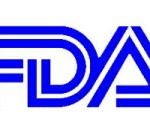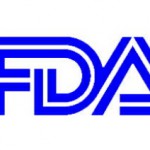The Food and Drug Administration published four revised provisions of the Food Safety Modernization Act today. The rules are for produce safety, preventive controls for human food, preventive controls for animal food, and Foreign Supplier Verification Programs. The produce safety rules is being revised for more flexible criteria for determining agricultural water safety along with a tiered approach to water testing. In addition, the government is deferring its decision on the correct time interval between applying raw manure to a crop and harvesting it, removing the original nine-month limit. On the preventive controls for human and animal foods, requirements that facilities test products is revised. Supplier controls will also be implemented. Good manufacturing practice requirements … [Read more...]
Members of Congress Want to See Full Funding for FSMA
Members of the U.S. House Roda DeLauro (D-CT) and Sam Farr (D-CA) sent a letter last week to the White House Office of Management and Budget (OMB) and the Department of Health and Human Services (HHS) to ask them to fully fund the Food Safety and Modernization Act of 2011 (FSMA) rather than relying on user fees. In the fiscal year 2015 budget, the FDA requested $1.48 million for food safety, which includes $255 million in proposed user fees. Their letter states that "FDA must have the resources to retrain the existing inspection workforce, hire new staff, and contract with states to leverage their inspection forces. Continuing outbreaks of foodborne illness undermine consumer confidence and greatly concern those of us who supported FSMA and want it to be implemented … [Read more...]
FDA Proposes Rule for Grocery Store Food Recall Notices
The FDA has issued advanced notice of proposed rulemaking to seek public input on part of the Food Safety Modernization Act of 2011. The FDA may require manufacturers and distributors to submit "consumer-oriented" information when a recall is issued that will help consumers accurately identify whether they have the food that has been recalled. The FDA will then prepare and publish on their website a one-page summary of the information to be printed by grocery stores and displayed. The summary must be displayed prominently within 24 hours after it is published in the web site. The FDA wants input on the content of the consumer-oriented information, when it will be required, the formats required, and how updates will be handled. They also want to define "grocery store", and how the … [Read more...]
FDA Announces Intentional Adulteration Rule
The FDA has released a part of the Food Safety and Modernization Act (FSMA) that addresses intentional adulteration of the food supply. The rule, called "Focused Mitigation Strategies to Protect Food Against Intentional Adulteration" addresses acts of terrorism. Domestic and foreign facilities must addresses vulnerable processes to prevent this type of terrorism, which is intended to cause large-scale public harm. Food businesses will be required to have a written food defense plan. This type of adulteration includes the goal of inflicting massive public health harm, such as acts of terrorism. While the FDA states that this type of adulteration is unlikely, it could have catastrophic results. In addition to many people becoming ill or dying, loss of public confidence in food safety … [Read more...]
FDA Motion to Delay FSMA Rules Denied by Court of Appeals
The Ninth Circuit Court of Appeals denied an FDA motion yesterday to delay issuing a rule required by the Food Safety Modernization Act of 2011. FDA did not meet deadlines set by Congress, so the Center for Food Safety sued that agency. The court agreed with CFS that delaying the rules was unacceptable, and re-established deadlines, starting with all drafts issued by November 30, 2013. FDA appealed that decision and sought a stay of the injunction. Yesterday's decision rejected the appeal for an extension, but let the agency have an extra 16 days to make up for the government shutdown last month. George Kimbrell, lead attorney for CFS, said in a statement, "Congress passed FMSA to end the preventable foodborne illness epidemic in this country. But without its implementing rules, the … [Read more...]
Judge Tells FDA No More FSMA Extensions
Federal Judge Phyllis Hamilton has sided with the Center for Food Safety again and told the FDA that there can be no more extensions of rules in the Food Safety Modernization Act. The rules should have been completed last July, but there have been delays at the Office of Management and Budget, and the FDA has extended comment periods several times. The Center for Food Safety filed suit against the FDA last year when the original deadlines were not met. Judge Hamilton ruled that the FDA violated the law in a decision released April 2013. Last month the FDA moved for reconsideration or a stay of the injunction, but the Judge denied that motion. George Kimbrell, senior attorney for the Center for Food Safety, said in a statement, "this ruling is clear. FDA must step up and protect … [Read more...]
FDA Releases Imported Food Rules
The FDA has finally released two Food Safety Modernization Act (FSMA) rules designed to improve the safety of imported foods. The rules will require that anyone importing food into this country must verify that the supplier is using prevention-based food safety practices. They must also create a system for certifying third-party auditors. These rules will hopefully prevent outbreaks such as the hepatitis A outbreak linked to imported pomegranate seeds that has sickened more than 150 people in this country. Eight of the 19 multi state foodborne illness outbreaks that have occurred since FSMA became law in January 2011 have been linked to imported foods. The rules have been stalled at the Office of Management and Budget for more than 1-1/2 years. The proposed rule for foreign supplier … [Read more...]
Food Poisoning Outbreaks Show Need For New FSMA Import Rules
The number of cases in the hepatitis A outbreak linked to frozen berry mix that contains imported pomegranate seeds continued its steady climb this week as the Centers for Disease Control and Prevention (CDC) issued final reports on two Salmonella outbreaks linked to imported foods- cucumbers from Mexico and tahini paste from Turkey. Over the last few months, these three outbreaks have sickened at least 222 people- killing one of them, as proposed food safety rules for imported foods gather dust in Washington. Two and a half years after President Obama signed the Food Safety Modernization Act (FSMA) almost nothing has happened. The U.S. Food and Drug Administration (FDA) was tasked with filling in the details of the food safety reforms outlined in FSMA, but so far only two proposed … [Read more...]
Judge Orders FDA to Complete FSMA Rules by June 2015
Federal Judge Phyllis Hamilton of the U.S. District court of Northern California rejected the FDA's proposed timeline for completion of the Food Safety and Modernization Act (FSMA) timeline and ordered the agency to publish all regulations by June 30, 2015. In her decision, Hamilton wrote, "the court finds defendant's 'target timeframes' to be an inadequate response to the request that the parties submit a proposal regarding deadlines that can form the basis of an injunction." The FDA was sued by the Center for Food Safety in August 2012, which applauded the Judge's decision today. George Kimbrell, CFS senior attorney said in a statement, "this is a critical victory for consumers, farmers, and the public health. The Court's decision will ensure FDA cannot unduly delay these life-saving … [Read more...]
FSMA Whistleblower Lawsuit Filed Against Brothers International Food Corp.
Last week, Colin Chase, a former employee of Brothers International Food Corporation, sued the company in federal court, alleging the company violated the Food Safety Modernization Act (FSMA) whistleblower protection. The Director of eCommerce was fired in July 2012 after telling management that expired potato chips were being re-dated and placed on the market for sale. He was also concerned that dehydrated apple crisps were being improperly rehydrated, possibly making them vulnerable to bacterial contamination. Fuji Apple Fruit Crisps were referred to internally as the "soggy", "soft" or "bad" apple situation. The Company responded by saying that new expiration dates would be put on the potato chips. Chase was told to tell customers the reason for re-dating was that the product had … [Read more...]








